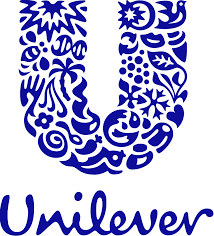by Magne, Peter Aleksander, Haakon, Øyvind André and Ryan
Unilever has a Sustainable Living Plan (SLP) that was launched in November 2010 whose goals include helping 1 billion people to improve their health and well-being by 2020. This SLP spans all brands and all countries that Unilever sells in and has both an economic and an social dimension. The Sustainable Living Plan was broadened in 2013, with Unilever seeking to deepen its efforts in three areas where it has especial influence (the elimination of deforestation, sustainable agriculture and the development of smallholder farming, and improving hygiene via hand washing, safe drinking water provision and better sanitation).
 Paul Polman, CEO of Uniliver, has ensured corporate responsibility is pervasive throughout the Unilever organization. SLP is proving to be a source of competitive advantage as employees and consumers are increasingly judging companies on how they impact with society.
Paul Polman, CEO of Uniliver, has ensured corporate responsibility is pervasive throughout the Unilever organization. SLP is proving to be a source of competitive advantage as employees and consumers are increasingly judging companies on how they impact with society.
Furthermore, Unilever Sustainable Living Plan brands now represents
more than 1/3 of their portfolio and is growing faster than the rest of the group.
Unilever seeks to work to cut its impact in diverse fields, ranging from the sourcing of raw materials to the way that consumers use its products. Life cycle assessments are conducted for all new products to assess their potential environmental impact versus the products being replaced. Knorr, a Unilever brand, is currently seeking to ensure that all of its major
vegetables and herbs are grown sustainably by the end of 2015. Hellmann’s
mayonnaise, a Unilever brand, has used cage-free eggs and high quality ingredient.
Unilever aims to manufacture products that are sustainably sourced and hence to protect resources for future generations. The good sustainability angle – goals include 100% sourcing of agricultural raw materials from sustainable sources – is though also excellent business practice for the group. The vast majority of customers favour such thinking, and most of the retailers supplied are also keen to ensure the best possible compliance so that Unilever’s relationships here are often deepened via this strategy. Good publicity can be created for specific brands, giving them a competitive advantage and differentiation, whilst smart thinking on this front can also save manufacturing costs through cutting waste in terms of energy and raw materials use.
To determine if a company is genuinly interested in CSR they would have to prove it the bad times when no one is looking. Companies that are genuinly interested in CSR would keep doing CSR even though its not profitable (in the short run) and even though no one is watching.
LikeLike
It is a very good initative, however having your competitive advantage coming from “good publicity” might not hold in the long run. Especially in bad times where, if they dont deliver their products for the same price as their competitors, they might get dropped.
LikeLike
At first sight, this seems like a great initiative. But they only mention areas where they can sell more of their own products. What about the areas where they actually need to sell less of one or more products. A secondary perspective like this would increase their credibility.
LikeLike
I agree with the other comments, having a corporate social responsibility program based on the need for good publicity, seems like a short-time span mindset and I also question what will happen if the positive publicity vanishes and if they only focus on initiatives that create publicity, not initiatives that can actually create sustainable change.
LikeLike
While I agree with the comments towards publicity not being a viable long-term competitive, I do not think that Unilever seeks to make publicity their primary differentiation factor. A company as large as Unilever almost most likely has more than one competitive advantage (such as price given their economies of scale), but good publicity definitely helps to supplement these advantages that they already have.
Also, if their publicity for their initiatives were to disappear, I would argue that Unilever may continue these initiatives. They probably create a sense of pride, motivation and culture in the work place, and ensure that employees have a good moral standing when coming to work for a big corporation like Unilever in the morning. I agree with your comments, and I hope that Unilever is acting out of authenticity as opposed to superficially for product sales, but these are the kind of things that are extremely complex to determine when looking at a company’s CSR portfolio or objectives.
LikeLike
Coming from underdeveloped country, where Unilever is one of the largest companies, I can assure you that most of their so called efforts of sustainability is just window dressing. I mean they are just there to rip off the resources and take the money back to their head quarters.
LikeLike